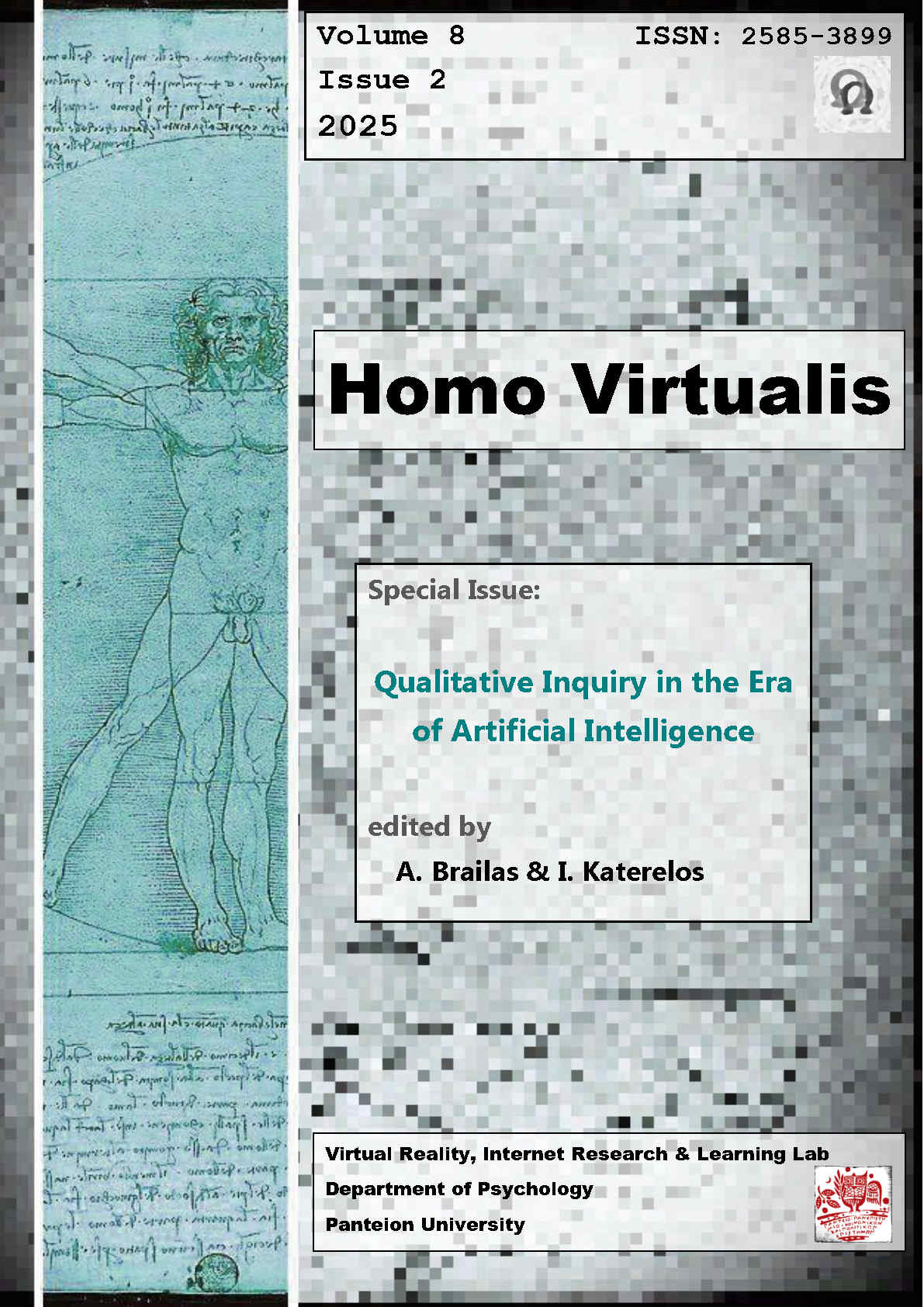Alternative forms of psychological interventions: Trauma and emotional expression
Resumen
This study examines the subjective meaning-making of psychological trauma among young individuals, through the recollection of personal traumatic experiences, combined with the potential effectiveness of alternative forms of psychological interventions. The central aim of the research is an in-depth understanding of trauma as an experience that exceeds the individual’s adaptive capacities and often leads to emotional numbness. The theoretical framework draws on classic theories, such as those of Van der Kolk, Porges and others, focusing on how a traumatic event affects, among other things, both the formation of personality and the development of interpersonal relationships. The methodology combines literature review with innovative multimodal approaches, such as non-verbal expression through art, narrative and sand therapy, as well as the use of Appreciative Inquiry. The main findings indicate that trauma profoundly impacts memory, emotional regulation and the ability for interpersonal connection. Finally, reference is made to specific therapeutic methods, such as Eye Movement Desensitization and Reprocessing (EMDR) and Somatic Experiencing, which significantly contribute to trauma processing, transforming the traumatic experience into a starting point for personal reconstruction.
Article Details
- Cómo citar
-
Mati , K. A. (2025). Alternative forms of psychological interventions: Trauma and emotional expression. Homo Virtualis, 8(2), 281–307. https://doi.org/10.12681/homvir.43493
- Sección
- Articles

Esta obra está bajo una licencia internacional Creative Commons Atribución 4.0.
Authors who publish with this journal agree to the following terms:
· Authors retain copyright and grant the journal right of first publication with the work simultaneously licensed under a Creative Commons Attribution License that allows others to share the work with an acknowledgement of the work's authorship and initial publication in this journal.
· Authors are able to enter into separate, additional contractual arrangements for the non-exclusive distribution of the journal's published version of the work (e.g. post it to an institutional repository or publish it in a book), with an acknowledgement of its initial publication in this journal.
· Authors are permitted and encouraged to post their work online (preferably in institutional repositories or on their website) prior to and during the submission process, as it can lead to productive exchanges, as well as earlier and greater citation of published work.



